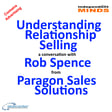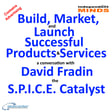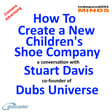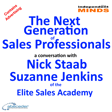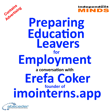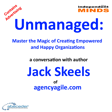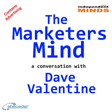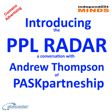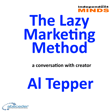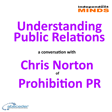
Assessing Teams like a Venture Capitalist a conversation with Hutton Henry of Beyond M&A
Hutton Henry is the man who can increase the sale value of your technology, digital or creative business.
He provides venture capitalists and angel investors with assessments of the invest-ability of your business.
The value of your tech business is based on the value your tech team delivers.
In this conversation with Michael Millward, Hutton explains how he conducts his assessments and how even if you are not looking to sell your business the same assessments can help to make your tech team more productive and easier to communicate with.
The Independent Minds is made on Zencastr.
Zencastr is the all-in-one podcasting platform, on which you can create your podcast in one place and then distribute it to the major platforms like Spotify, Apple, and Google You Tube Music. It really does make creating content so easy.
If you would like to try podcasting using Zencastr visit zencastr.com/pricing and use our offer code ABECEDER.
Travel to County Durham
As well as being a tech expert and really decent bloke, Hutton Henry is also a village in County Durham in the north east of England.
If you would like to visit Hutton Henry (the village), a good place to plan your travel is The Ultimate Travel Club. It is where you will get trade prices on travel including flights, and hotels.
Visit the Ultimate Travel Club, and use our offer code to receive a discount on your membership fee.
• ABEC79
You can find out more about both Michael Millward, and Hutton Henry at abeceder.co.uk.
Three – the network
If you are listening to The Independent Minds on your smart phone in the UK, you may like to know that Three has the UK’s Fastest 5G Network with Unlimited Data, so listening on Three means you can wave goodbye to buffering.
Visit Three for more information about business and personal telecom solutions from Three. And the special offers available when you quote my referral code.
- WPFNUQHU
Being a Guest
I met Hutton Henry on Matchmaker.fm.
If you are a podcaster looking for interesting guests or if like Hutton, you have something very interesting to say Matchmaker.fm is where matches of great hosts and great guests are made. Use our offer code for a discount on membership.
- MILW10
We recommend that potential guests take one of the podcasting guest training programmes available from Work Place Learning Centre.
If you have liked this episode of The Independent Minds, please give it a like and download it so that you can listen any time anywhere.
To make sure you do not miss future editions please subscribe.
Remember, the aim of all the podcasts produced by Abeceder is not to tell you what to think, but we do hope to make you think!
Thank you to you for listening.
